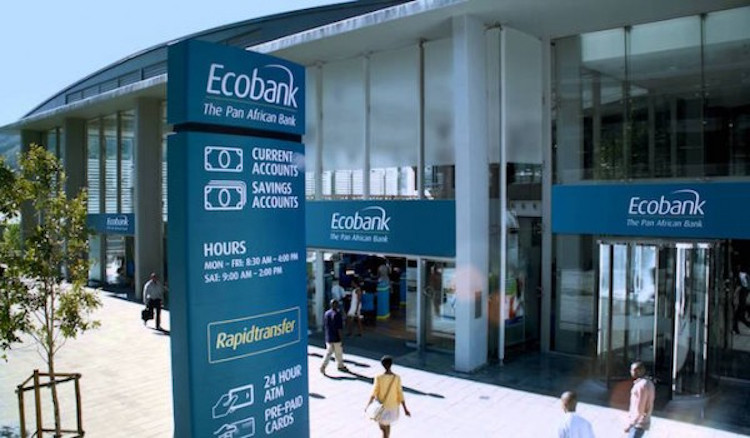Banking & Finance
Fitch Grants Ecobank Nigeria’s USD300M Senior Unsecured Notes ‘B-‘

Fitch Ratings has assigned Ecobank Nigeria Finance Company BV’s USD300 million 7.125% senior participation notes due 2026 a final rating of ‘B-‘ with a Recovery Rating of ‘RR4’. EBN Finance Company BV is a Netherlands-based special purpose vehicle of EBN (ENG; B-/Stable/b-). ENG’s other ratings are unaffected by this rating action.
The proceeds of the senior notes will be used by ENG for general-banking purposes, including providing the bank with stable medium-term funding.
The final rating is in line with the expected rating that Fitch assigned to the notes on February 10 2021.
KEY RATING DRIVERS
The senior notes’ rating is solely driven by ENG’s Long-Term Issuer Default Rating (IDR) of ‘B-‘. This reflects Fitch’s view that the default of these senior unsecured obligations would reflect a default of ENG in accordance with Fitch’s rating definitions and the transaction documents described in the prospectus.
Fitch has given no consideration to the underlying transaction structure as it believes that the issuer’s ability to satisfy payments due on the notes will ultimately depend on ENG satisfying its senior unsecured payment obligations to the issuer under the transaction documents.
The Recovery Rating of ‘RR4’ reflects average recovery prospects in the event of a default based on country-specific factors.
ENG’s ‘B-‘ Long-Term IDR is driven by its intrinsic credit strength, as expressed by its Viability Rating (VR) of ‘B’. The VR reflects the constraint of Nigeria’s challenging operating environment, the bank’s very high impaired loan ratio, weak profitability and modest core capital buffers.
Fitch Grants Ecobank Nigeria’s USD300 Million Senior Unsecured Notes ‘B-‘
This is balanced by company profile strengths as well as a solid funding profile and good foreign-currency liquidity, supported by ordinary support from Ecobank Group as part of its inter-affiliate placement programme (IAP).
RATING SENSITIVITIES
Factors that could, individually or collectively, lead to positive rating action/upgrade:
The notes’ rating would be upgraded if Ecobank Nigeria’s Long-Term IDR was upgraded, which is not our base case given the Stable Outlook.
The upside to ENG’s IDR is limited at present was given the bank’s high impaired loan ratio and the ensuing pressure on other financial factors.
The upside is contingent on a material improvement in the bank’s operating income and profitability, with performance metrics more akin to that of larger banks in Nigeria. This will depend on volume growth and a sustained improvement in asset quality.
READ: Fitch Ratings Affirms Union Bank PLC At ‘B-‘; Outlook Negative
Factors that could, individually or collectively, lead to negative rating action/downgrade:
The notes’ rating would be downgraded if ENG’s Long-Term IDR was downgraded, which is not our base case given the Stable Outlook. The IDR could be downgraded in case of a sharp increase in the net impaired loans/Fitch core capital (FCC) ratio, closer to its recent peak of around 50%, or a drop in the FCC ratio to below 10%.
ESG CONSIDERATIONS
Unless otherwise disclosed in this section, the highest level of ESG credit relevance is a score of ‘3’. This means ESG issues are credit-neutral or have only a minimal credit impact on the entity, either due to their nature or the way in which they are being managed by the entity.
BEST/WORST CASE RATING SCENARIO
International scale credit ratings of Financial Institutions and Covered Bond issuers have a best-case rating upgrade scenario (defined as the 99th percentile of rating transitions, measured in a positive direction) of three notches over a three-year rating horizon; and a worst-case rating downgrade scenario (defined as the 99th percentile of rating transitions, measured in a negative direction) of four notches over three years.
The complete span of best- and worst-case scenario credit ratings for all rating categories range from ‘AAA’ to ‘D’. Best- and worst-case scenario credit ratings are based on historical performance.

















